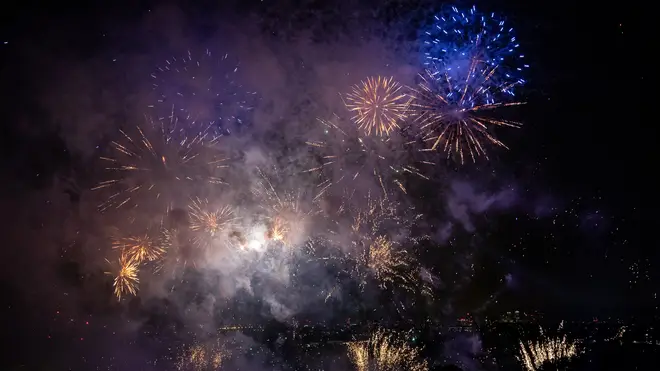
Henry Riley 4am - 7am
5 November 2019, 10:21

Air pollution levels rocketed to four times the usual daytime level on Bonfire Night last year, scientists have said.
A major urban study across Newcastle and Gateshead found measurements tripled between 8pm and midnight as bonfires and fireworks were lit.
The results came as the House of Commons Petitions Committee released a report finding the "inconsiderate and irresponsible" use of fireworks should be considered as socially unacceptable as drink-driving.
It found fireworks can be bad for animal welfare and can impact people with disabilities or health conditions such as PTSD or autism.
In one case at the weekend, a puppy died of a heart attack after being frightened by fireworks.
Pet owner Susan Paterson posted on Facebook about Molly, her 18-week-old terrier, who "died of fright" due to "loud bangs" going off in the Wombwell and Darfield area in South Yorkshire.
The study, which used thousands of sensors, found levels rose from around 20 micrograms/m3 during the day to 80 micrograms/m3 just before 11pm.
That figure compares with the annual average across the area of 25 micrograms/m3 and is eight times the World Health Organisation's recommended safe limit of ten micrograms/m3.
The data was collected as part of Newcastle University's Urban Observatory, the UK's largest urban experiment collecting data about city life, taking in around 60 studies of everything from energy use, noise, rainfall, pollution, traffic and social media use.
Professor Phil James, from Newcastle University's School of Engineering, said: "The air pollution data we collected over 24 hours last Bonfire Night paints a really striking picture of the impact the fireworks and bonfires are having on air quality.
"It's perhaps not surprising - you can often smell the gunpowder and smoke in the air on November 5th - and the low cloud cover that night exacerbated the situation."
The Department for Environment, Food and Rural Affairs (Defra) said pollution levels were not expected to remain high around Bonfire Night this year, with different weather conditions forecast from those experienced in 2018.
A Defra spokesman said: "Fireworks and bonfire celebrations can sometimes lead to temporarily increased levels of air pollution in localised areas, however we are expecting pollution levels to fall rapidly on Bonfire Night this year as the increased winds should disperse any particles."